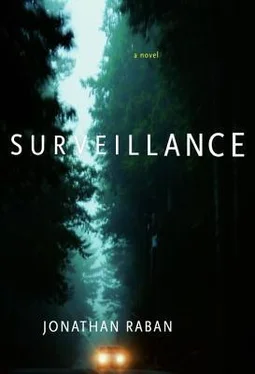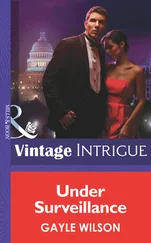“Think Globally, Act Locally” and “Support Your Local Planet” were two of the bumper stickers on the heap, along with “Just Because You’re Paranoid It Doesn’t Mean They Aren’t Out to Get You,” the names of old, forgotten politicians who’d once run for president, and the mystifying “Sack the Cox-Sacker.” You could always get Tad going by asking “Who was Jerry Brown?” or “Who was George McGovern?” It seemed like nobody he’d voted for had ever won — something else that Tad took a strange pride in, as if losers were better than winners, and Alida had the feeling that if his hero Ralph Nader had actually become president, it wouldn’t have taken Tad any time at all to despise him. He was always saying “He sold out” about some politician, and in Tad’s language winning appeared to be the surefire way of selling out.
When Alida herself won — like taking first place in the individual section of the interschool sixth-grade Math Olympiad, which was filmed on community TV — she had to be careful about how she delivered the news to Tad. She didn’t want him to think she was a sellout. It probably would’ve been better to come in third, but Tad seemed happy enough with her first place and bought her the iPod the next day as a reward.
Windows rolled down, the Beetle jounced and rattled into the crawl of traffic on Boren. Alida’s seat was unpleasantly, intimately hot. Falling away below them, the city looked as if it were melting: tall buildings trembling in the heat like columns of gas, cars afloat like boats in streets of liquid haze, skinny gold rectangles of water showing in the gaps between the office towers. When Tad turned right into the low sun, Alida caught the sudden blaze through the grimy windshield and covered her face with her hands. “It’s kind of like enervating, ” she said, trying the word out aloud for the first time.
“Enervating, right. Be glad you’re not a sockeye salmon.”
“Why?”
“They were talking about it on the radio this morning. Know what temperature a sockeye gets stressed out with heat exhaustion? Sixty-eight degrees. Last week they measured the temperature of Lake Washington — sixty-nine degrees. It should be like fifty this time of year. By June, when the sockeye come in from the sea, they’re saying it could be eighty. Which means that every stupid fish that makes it through the locks is going to die of asphyxiation.”
“That’s so sad,” Alida said, keeping to herself the fact that salmon was her absolute least favorite food.
“Imagine Lake Washington full of angelfish and guppies.”
“We did the greenhouse effect. I wrote a lab report about it. We used a heat lamp and soda bottles, black construction paper and water and thermometers and Alka-Seltzer. It was cool.”
“Alka-Seltzer?”
“Yeah. It gives off carbon dioxide when it fizzes.”
The tang of smoke from the morning fire grew thicker as they drove down over the bridge across the freeway, where the packed miles of cars and trucks were at a growling standstill, toxic gunk spilling into the air from every tailpipe. Alida counted off emissions on the fingers of her left hand: sulfur, carbon, nitrous oxide, ozone. “It’s so obvious,” she said. “Why can’t they just get it?”
“All the usual reasons: greed, arrogance, stupidity, blind denial. Lobbyists. President Reagan — he was the one before Bush’s dad — said that cow farts did more damage to the atmosphere than the entire automobile industry.”
“The president said that?”
“I expect some flack for General Motors dreamed that bright thought up for him.”
“But the president said farts ?”
“Maybe he said ‘flatulence,’ I don’t remember. He had it in for trees, too. Very dangerous things, trees. Fouling up the air with their horrible hydrocarbons. Like a Douglas fir is a whole lot worse than a Chevy Suburban or a Ford Expedition, and a whole forest is a frigging ecological disaster.” Stopped at a light, Tad was doing his actor thing, assembling his face into a new shape. His cheeks bulged, his upper teeth were exposed in a slightly crooked grin, and when he spoke it was in a solemn, rusty-sounding grandpa voice: “And so, my fellow Americans, today I ask you to join with me in saluting the heroes of the timber industry, the loggers who daily risk their lives to preserve this blessed land, this last and greatest bastion of freedom, from the deadly pollution of trees.”
“No he didn’t.” Tad was a good actor, but his exaggerations could be pretty silly. “He never said that.”
“Well, not in so many words, maybe, but he thought it.”
Which was not, Alida thought, a satisfactory explanation. She didn’t like fantasy — had totally hated The Lord of the Rings , for instance, which they’d had to read last semester. The trouble with fantasy was that you could always see how everything could just as easily have been otherwise, and Tad’s tall stories suffered from the same problem. Like her mom said, though she meant something a little different, Tad’s weakness was his tendency to be “unrealistic,” and Alida was hungry for realism. Most of her favorite books were nonfiction, like Anne Frank’s diary, and Peg Kehret’s memoir of the year she had polio as a kid — books where stuff happened because there was no other way for it to happen, however much the author might have wanted it to happen differently.
The Beetle turned the corner onto Adams Street; then Tad wrestled the gear stick into reverse and began to back into a parking spot. “You’ve got your prosecuting attorney’s face on, Ali. What’s up?”
“I was just thinking.”
“About what?”
Alida unbuckled her seat belt and wound up the window. “Fiction and nonfiction.”
Adams Street was where the city lost its fuzziness and noise, swelling into sudden sharp focus like that picture by the famous Dutch artist where everything — housemaids, cobblestones, kids, brooms, chimney pots — was part of a complicated pattern. “It’s all in the composition,” Mr. McNeil, her art teacher, said, and it was as a composition that Alida saw Adams Street: its chubby pigeons, its yellow fire hydrant, the cracks in the sidewalk, the telephone pole silvered with staples where it wasn’t wrapped around with notices of rock concerts and lost cats, the ancient iron manhole cover embossed with the head of an Indian chief, and the rosy purple brick and molded gray terra-cotta of the Acropolis building. She wasn’t much good at art, unlike Gail, who always got A’s, but Alida could imagine herself painting Adams Street like — what was the guy’s name? Jan something. Vermeer.
To Alida, who loved facts, no fact was more reliable than Apt. #701, 420 Adams Street, Seattle, WA 98104, USA, Planet Earth, the Universe. She’d been driven there straight from Swedish Hospital as a one-day-old, and the building held her entire past like a box. Schools and teachers changed, friends were made and lost, people died, but the Acropolis, old as the city, went on being the Acropolis. It always smelled the same, of overbaked cookies and Lysol. She knew every moan and grumble of the narrow elevator that was a tight squash for three. She was comforted by the rusty jungle gym of fire escapes at the back of the building, on which she’d always been strictly forbidden to play. She was strangely proud of the decaying remains of the advertisement that had been painted long ago on the building’s west side. Nothing was left of the picture except a few dim flakes of color that clung to the brick. Nowadays, nobody could make out the letters of the message, but when Alida was a little kid, still learning to read, she and her mom had decoded it. It said, or used to say:
Читать дальше












